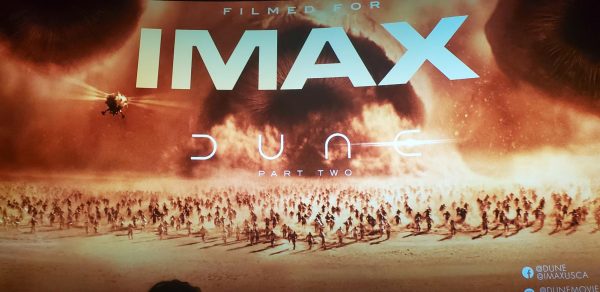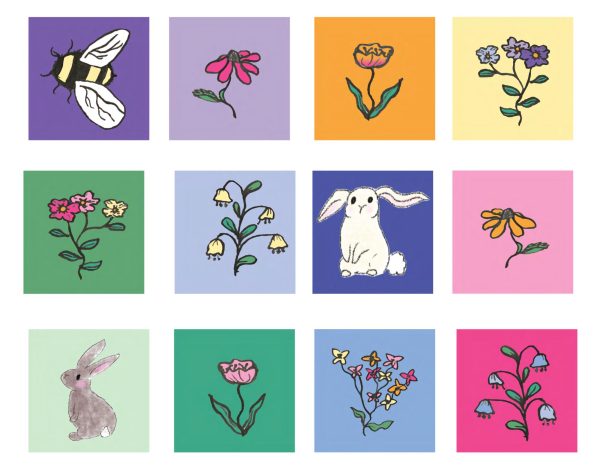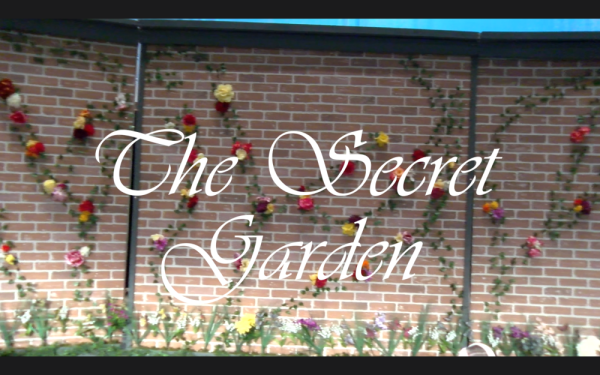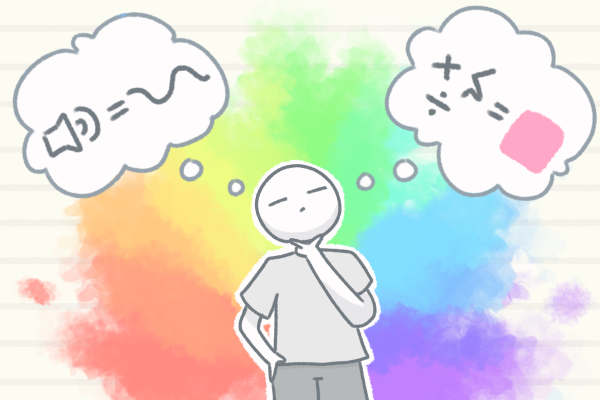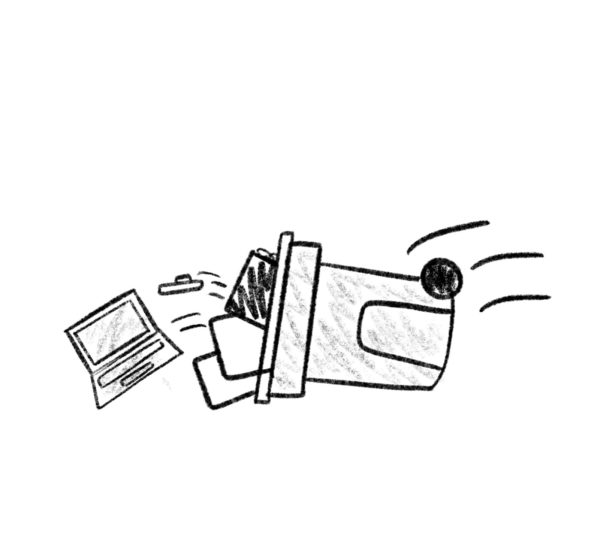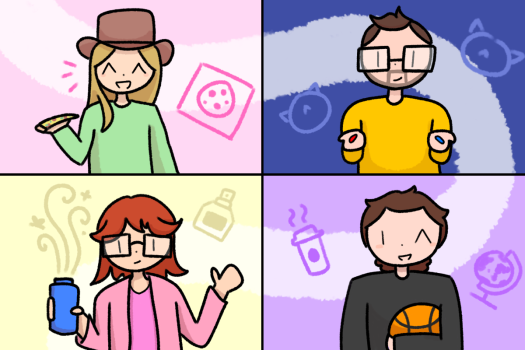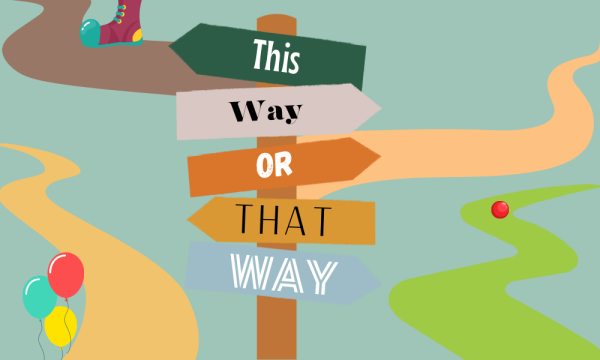Way down we go: a “Turtles All the Way Down” review
John Green’s grand return gets bogged down by a wandering plot that steals attention away from a captivating protagonist.
Announcer: Welcome back to “Another Unpopular Opinion”! Here’s your host, Luke Reynolds!
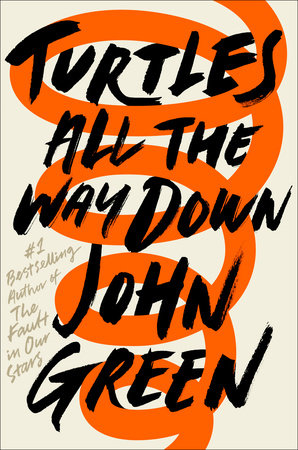
*audience mostly claps and cheers, some boo and shake their heads*
Luke: Thank you, thank you! I’m glad you guys liked the last episode and are sticking around for this series. I hope you enjoy hearing book reviews that oppose the rest of mainstream culture, because you’re at that place. Keep in mind that I’m in no way trying to bash the author or criticize them for writing this book. I’m focused on the book itself and considering/critiquing it on its own. My opinion is my own and no one else’s.
So, who’s heard of John Green?
*almost all of audience raises their hands, some look around, confused*
Luke: Most of you? Great! If you don’t know, people are going to say you’ve been living under a rock. He first started releasing novels back in 2005 with “Looking for Alaska,” has partnered with his brother Hank Green for “Crash Course” and “Vlogbrothers” and skyrocketed to fame thanks to “The Fault in Our Stars.” Most of America loved that book, myself included, but that hasn’t stopped him from acquiring a divisive audience. Some people inhale everything he puts out. Others find him pretentious and unrealistic. Some writers despise his template and yet fall into it anyway. Some just don’t care. I’m not sure where I fall. I guess I’m that weird floater in the middle of all the categories. Back in eighth grade, “TFioS” was my everything. Then I tried “Paper Towns” between freshman and sophomore year and only made it about 50 pages in. I preferred the movie.
I can’t help but listen to both sides of the Green coin. I enjoy “Crash Course” and both of the brothers’ sense of humor. I respect the way Green takes some of his philosophical tangents to make something relatable and eloquent. But I don’t find his writing realistic at all. His teenagers speak like college graduate students or like mini versions of him, and it’s hard to take their flowery language seriously.

But it’s been five years since we last saw John Green. The synopsis for “Turtles All the Way Down” sounded interesting, the personal touches were promising and I appreciated the connection the title had to the cover art of the downward spiral. With high expectations, I started reading in the hopes I’d finally be able to reconnect with this author that has been a part of mainstream YA culture for a long time.
Well, I tried. I’m really hoping the Green super-fans don’t eat me alive for not liking what they’re going to call a masterpiece. I just didn’t find this all that good. The first third was pretty engaging, and then the book does this weird quasi-plot resolution thing and decides to wander. Instead of getting a gripping story about a girl struggling with her anxiety, OCD and hypochondriasis and trying to break through the waves of her conscious, all I got was this strange mash-up of romance, mystery and the aforementioned mental illness examination. Those didn’t work together, and the pretentious writing didn’t help matters. Overall, this was another disappointing read from John Green.
*girl with short brown hair stands up, wearing an “Okay? Okay” shirt and an offended look while she types furiously on her cell phone*
John Green Fangirl: How dare you! I rated this five stars on Goodreads before it came out knowing it would be amazing, and it was! You’re just a jealous hater! You’ll never be on John Green’s level! #TFIOS #HazelandAugustus4ever #IWannaBeaManicPixieDreamGirl #-
Luke: SECURITY!
*security guard appears as John Green Fangirl is still rattling off hashtags and escorts her out*
Luke: All right, should I start with the negatives again?
Random Man: *BLOOP* YEAH!
Luke: Hey, watch your language! There are children here.
*a mother shoots him a look while covering her son’s ears*
Random Man: Oh, sorry.
Luke: Thank you.
Like with Dress Codes for Small Towns, this book tries to be about so many things. There’s Aza Holmes struggling with thought spirals that send her into a black hole and make her puncture a callus on her finger constantly. There’s her best friend, Daisy, who writes Star Wars fanfiction. There’s another friend, Mychal, who’s an artist and trying to get a piece featured in a show. There’s a mystery involving a missing billionaire who would’ve gotten arrested for fraud if he hadn’t disappeared. There’s his son, Davis, and his younger brother, Noah, trying to make do without their father in their huge mansion even as one doesn’t miss him and the other wants him back. There’s a tuatara, a lizard-like creature descended from dinosaurs that the father left all his money to. There’s the grief left from dead parents, as Aza lost her dad and still cherishes his car and Davis lost his mother and feels like his single father doesn’t care. There’s Aza’s concerned mother, who worries about Aza’s mental state, the cost of college and how Davis could treat her daughter since he comes from wealth. And there are all the beautiful stars and Shakespeare quotes and anonymous blog posts.
Those all come together to create one quicksand pit of a book. Too much time is spent wandering between plot points without fully developing them. It even happens to the point where things get resolved and the entire suspense of the book is ruined. By the end of it, I can’t give you closure on what this book’s statement was. There was none because there were too many. At least you could make a statement at the end of TFioS.
[“Turtles All The Way Down” is] one quicksand pit of a book. Too much time is spent wandering between plot points without fully developing them.
— Luke Reynolds
Curious Cathy: *raises hand* True love should be cherished and you should value the time you have?
Luke: Exactly.
Outside of Aza, the other characters felt very flat. No descriptions were given for anyone except maybe Daisy’s skin color and definitely Davis’s eyes (both were brown). I’m a visualizer, so I like it when authors give me tangible qualities. But even their characteristics were weak. Davis was sweet and sincere, but that was his extent aside from quoting random passages from cool people on blogs and watching the stars. Daisy was the manic pixie dream girl who would always say something funny and call Aza “Holmesy” and was very passionate about her fanfics. Mychal was described as a “giant baby” who loved art, so I guess he’s bald? Your guess is as good as mine. And then everyone else is very one-note, like Aza’s mom and the random staff in Davis’s house.
Then we need to get to the writing as a whole. Do I really need to explain why “you start to feel your own infinitesimally” and “his tongue was…wet, alive, and microbial” are bad?
Random Man: *vomits*
Luke: Great. Can we get a clean-up in Aisle J?
But there were promising aspects of “Turtles All the Way Down”. Aza was an absolutely fantastic protagonist, and John Green made her diagnosed anxiety horrifying and believable. So many people struggle with mental illnesses, and to see an author who has been open about anxiety write a character who is constantly plagued by those doubts is awesome representation. Other writers can turn these conditions into jokes that can be very harmful. To see Green peel back the layers of comedy to reveal something so terrifying but realistic was awesome. I hope he continues to discuss mental health in the future in his books.
Aza was an absolutely fantastic protagonist, and John Green made her diagnosed anxiety horrifying and believable. To see Green peel back the layers … to reveal something so terrifying but realistic was awesome.
— Luke Reynolds
And there were passages that were absolutely breathtaking and showed that Green can be a strong writer when he’s not focused on having the characters discuss things that I don’t feel like they should be talking about. Take this for example.
“It’s a weird phrase in English, in love, like it’s a sea you drown in or a town you live in. You don’t get to be in anything else—in friendship or in anger or in hope. All you can be in is love.”
I like that a lot. It’s interesting and makes you think. We’re always in love with something. But we never do call any other relationship or emotion as something we’re in. Green does make a valid point, and there are sections specifically focused on Aza’s thought spirals that are fascinating and continue that line.
But as a whole, “Turtles All the Way Down” was a mess. Green took too many trips to the buffet to try and beef up his story, but if it had just been an examination about mental illness and how powerful it can be and not a mystery/romance/existential prophecy hybrid, it would’ve been powerful and effective. Instead, I got this. It could’ve been as simple and clear-cut as The Fault in Our Stars, but hey, that’s the way it goes sometimes.
That’ll be all. Thank you so much, and until the next unpopular opinion, good night!
*applause*
Your donation will support the student journalists of West High School. Your contribution will allow us to purchase Scholarship Yearbooks, newsroom equipment and cover our annual website hosting costs.

This is Luke's first and only year as a member of West Side Story. He'll be kept busy with anchoring, editing and reporting, but he's gonna have fun while...





